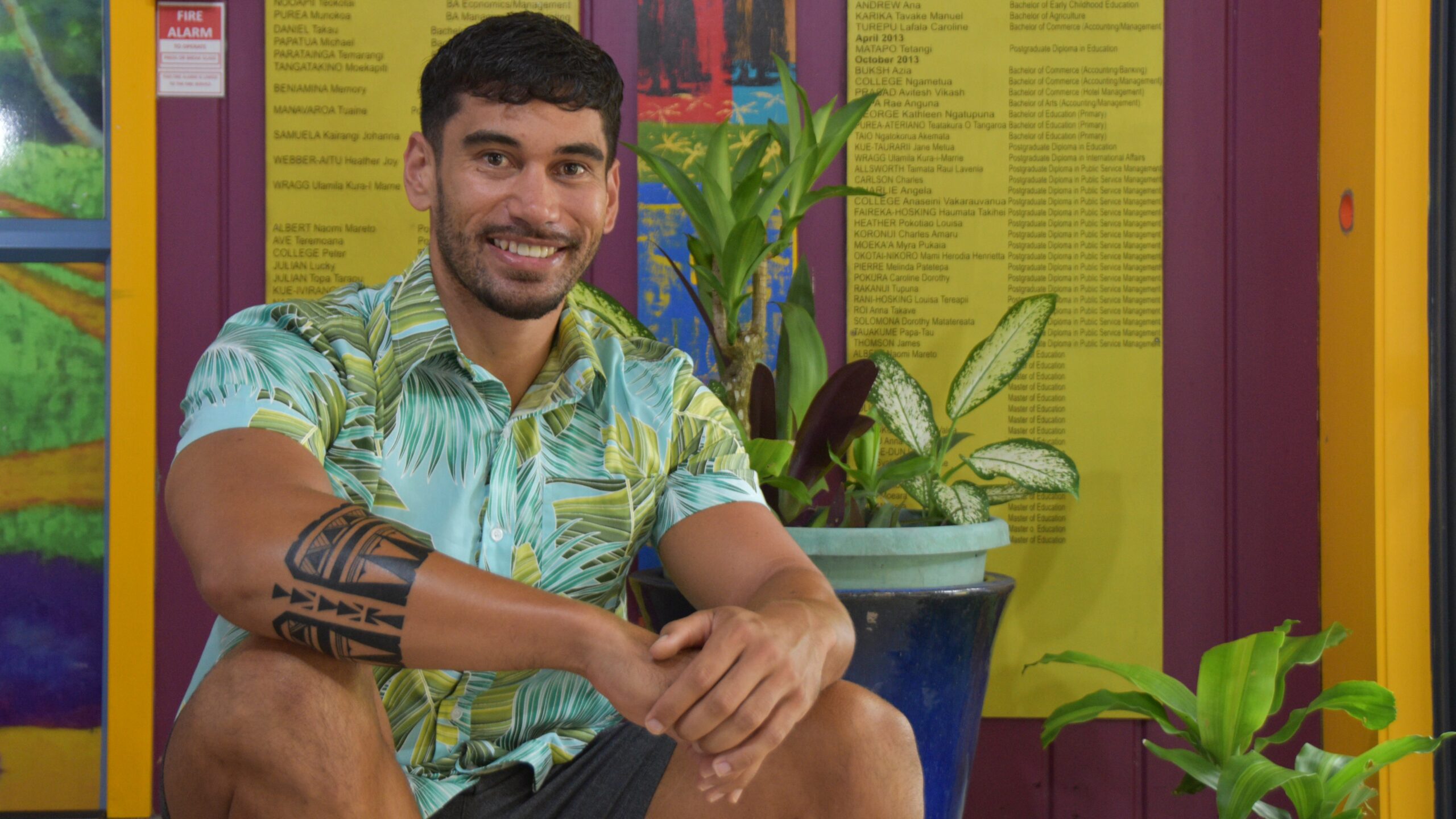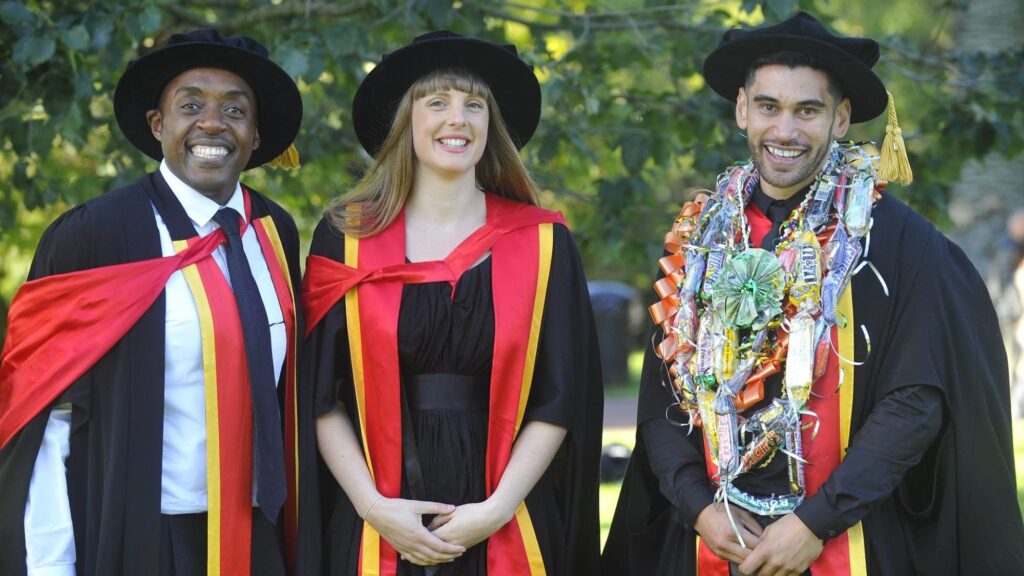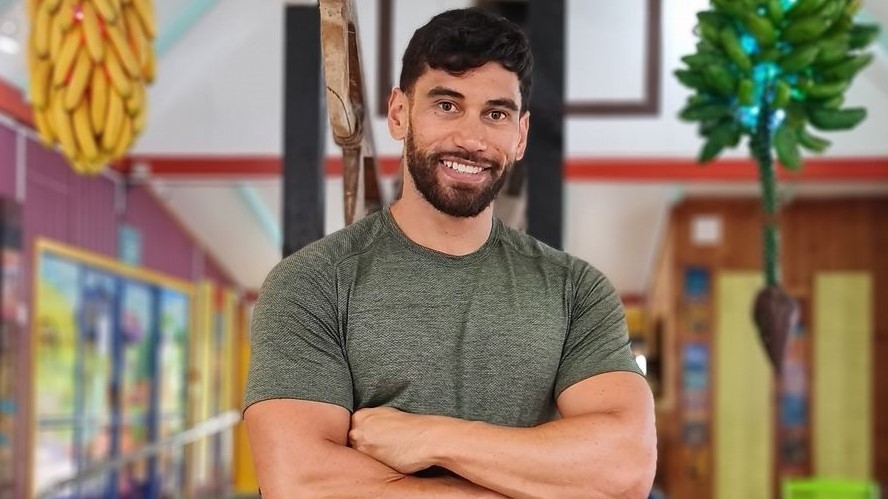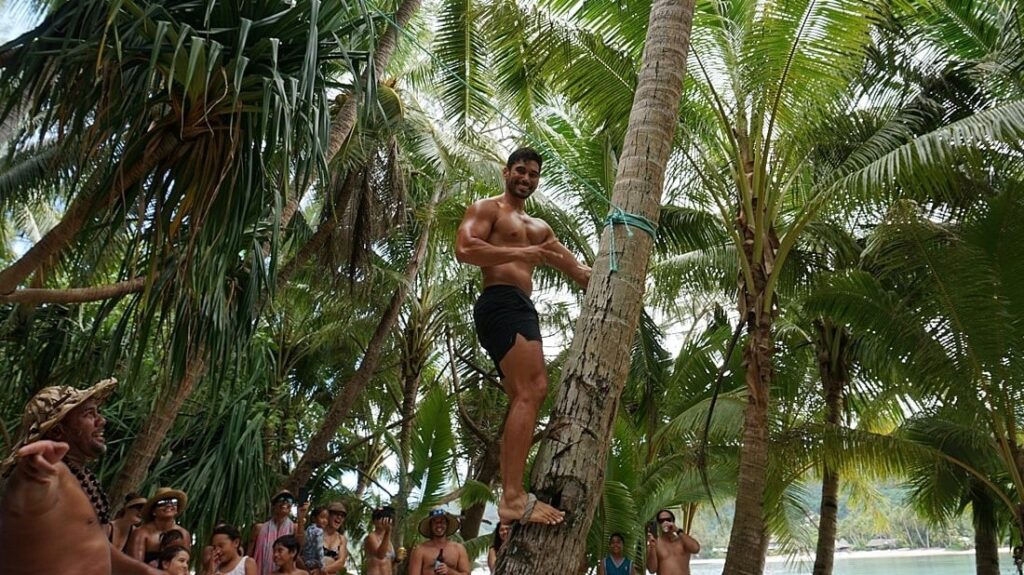Breaking down mental health barriers
Saturday 26 March 2022 | Written by Sian Solomon | Published in Features, Weekend

Sam Manuela is in Rarotonga to study mental health in the Cook Islands. PHOTO: SIAN SOLOMON/2203250
A renowned Cook Islands researcher and psychologist has returned home to better understand and study the impacts of mental health issues in the pacific and the country.
Cook Islands researcher Doctor Sam Manuela has a lot to share in the first five minutes of our chat. He is trying to prepare for his mental health project called Te 'Akirāta Mārama, which has been delayed because of Covid-19. The ethics application process for Auckland University that he recently worked on also received conditional approval. And he is also about to apply for a research permit for ethics, in the Cook Islands. That said, he loves and sometimes hates ethics, which is an essential part of any demanding and ambitious research project.
“Sometimes you just have to throw yourself into these difficult places or projects to really see how you can thrive and adapt to something,” he points out. “And that might require you to pursue things that are difficult and challenging, but are also equally rewarding.”
Manuela, who turns 36 this year, has built his career off diving into difficult spaces. Perhaps you’ve seen him at Auckland University, where he teaches the complexities of psychology to more than 1200 students a year. Maybe you’ve seen or heard about him on thecoconet.tv, Stuff or Radio New Zealand, or just about any Pacific news platform you can think of. This modern-day researcher, who has an appreciation for history and tradition, is an inspiring breed. And Manuela, an extremely gifted researcher who can view and critique things we might find impossible or difficult to understand, is built in this contemporary and diligent mode.
For people who have yet to cross paths with him, Manuela has gained fame for his research that focuses specifically on the relationship between Pacific ethno-cultural identity and positive wellbeing outcomes. It comes from understanding his “blended” cultural background, and that psychological frameworks are not necessarily suited to pacific populations.
The consistent element for all his projects is his strong background in psychometrics and quantitative methods, capable of measuring mental capacities and processes. Combine that with Pacific knowledge as the lens through which those processes and data can be easily understood and you have some incredible research.

As such, Manuela’s earnest commitment to providing information in this way, and through this lens has won him well-received popularity among his peers, and the Pacific community. It has also meant that he is called upon to provide his area of expertise for a wide range of things involving Pacific people, identity, and wellbeing.
“I have done things I never thought I would be doing,” he says candidly, referring to his time as an expert witness for the Royal Commission of Inquiry in New Zealand for abuse and state care. “There’s a big sense of responsibility that you do a lot of things for your community, and you want to make sure that you are doing it right.”
“(But) sometimes it can feel like because you’ve got a doctorate degree (Ph.D.) that you must know everything, and that can be difficult.
“So you have to be comfortable not knowing things, and quite comfortable that you’re not going to solve something, but also know that you’re going to help improve it, sometimes in different ways.”
Manuela’s passion for modern science was fostered during his childhood in Auckland, New Zealand, where he grew up around science fiction movies and chemistry experiments. At the same time, he was just a “regular kid” that “did well in school”, and says this interest in science eventually led him towards a passion that has solidified his place in the world.
“My journey into psychology was a little bit random,” he says. “Originally I went to University to become a microbiologist.
"(But then) I took psychology as an interest-paper to see what it was like, and it blew my mind. It ended up being a mix of things that I really enjoyed.”

His intent on pursuing a psychology research career eventually led him to the Cook Islands wherein 2019, he attended the Cook Islands health conference to present some of his research. There he met with Doctor Evangelene Daniela, a registered clinical psychologist along with Doctor Jesse Kokaua, a biostatistician from Otago University.
What unfolded between them, was a conversation about the lack of mental health statistics and data in the Cook Islands, at a population level. That eventually led to all three Cook Islanders deciding to apply for the Pacific Emerging Researcher Grant from New Zealand, which Manuela was eligible for.
The result was a successful proposal, which allowed them to collect data and identify things that people were experiencing across the Cook Islands, rather than waiting until support services were required from people, which Manuela reveals would have been “too late”.
“Without the data, we can’t really do much around the design of how to support people,” Manuela explains. “But if we know what is going on beforehand then we can have better strategies in place to support people and their needs.”
“(However) a big part of it, is really trying to identify what people are experiencing because if we don’t know that at the population level, then we can’t really dive into some of those broader conversations.
“We may find that mental health issues are quite common, and hopefully we can use that commonality to reduce stigma around mental health difficulties.”

What came next for Manuela was greater success and achievement professionally. In 2020, he began working on Te 'Akirāta Mārama, meaning “the dawn of new knowledge” as the principal investigator, which was a major milestone in his career. He also secured funding for another project called Pacific psychologies, which came as a huge surprise.
But just as the research into mental health in the Cook Islands was beginning, Covid-19 caused great disruptions and delays due to closed borders, New Zealand lockdowns, and university staff travel restrictions. His teaching of psychology to his students during Covid-19 proved to be a more difficult challenge than he expected.
“These last couple of years with Covid it has been stressful,” he says, pausing to let the thought sink in. “‘All of our teachings switched to online, and all of a sudden, we went from teaching in a lecture theatre to now talking to a blank computer screen – and that was not fun.”
“(As a teacher) your heart lies with your students, because you know how tough it is for them.
“But at the same time, you’re kind of having your own difficulties while trying to put up a brave front, and so that was difficult.”

Manuela shares that one way to reconcile his difficulties with teaching was to be honest and upfront about his feelings which allowed him to connect with his students over what he light-heartedly refers to as a shared misery. He reveals that it made his teachings and projects more comfortable while dealing with “such an odd situation”.
With all he has achieved, Manuela adds that being open to the way that we see things can be incredibly meaningful – revealing that he has had to change his own view set more than once.
“Research is about relationships and connections and talking and uncovering meanings,” he reflects. “That’s why I see myself as modern, with an appreciation of history.”
“Where I am now is because other people have come before me. (Also) I have been able to draw upon the research that other people have done, and that has moved things forward and improved things in different ways.
“I hope other people will be able to use my research to go forward and improve things as well.”
Te ‘Akirata Mārama mental health survey will be commencing as soon as everything is given the all-clear, says Manuela.
He will be working with a team of interviewers who will approach households across Rarotonga and Aitutaki, inviting people to participate. He and his team are hoping to survey over 1000 people.
“Some of the questions are quite sensitive and personal, he says. But these are important for us to know, to get a clear understanding of what people are experiencing.
“All of the interviewers will undergo training to uphold strict confidentiality and data security protocols, and that everyone who participates will be treated with the utmost respect and care.”




































